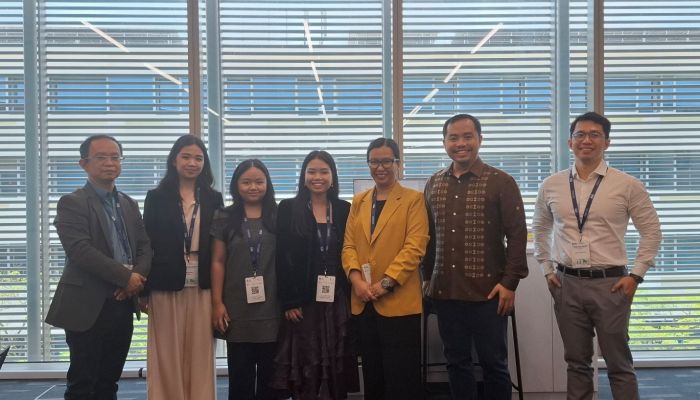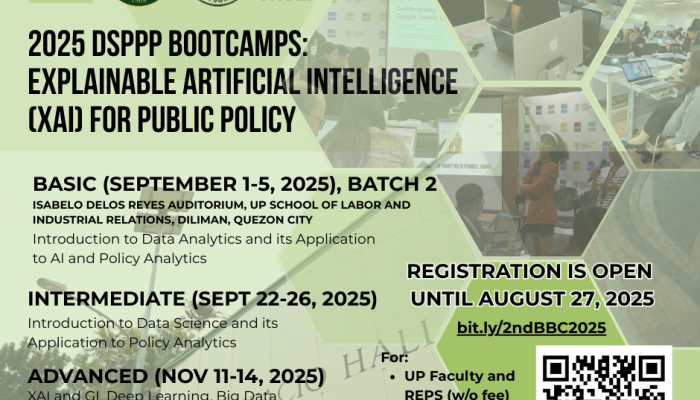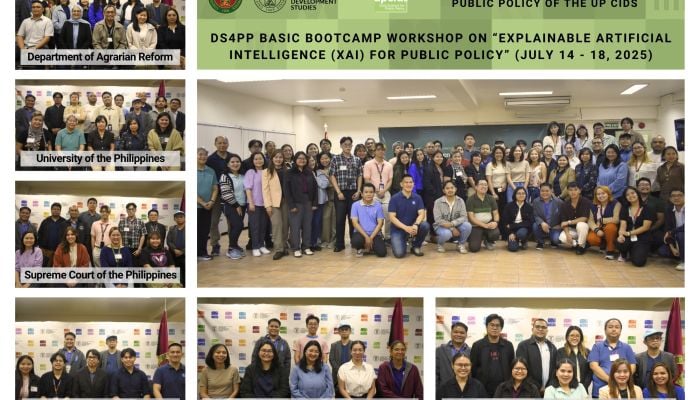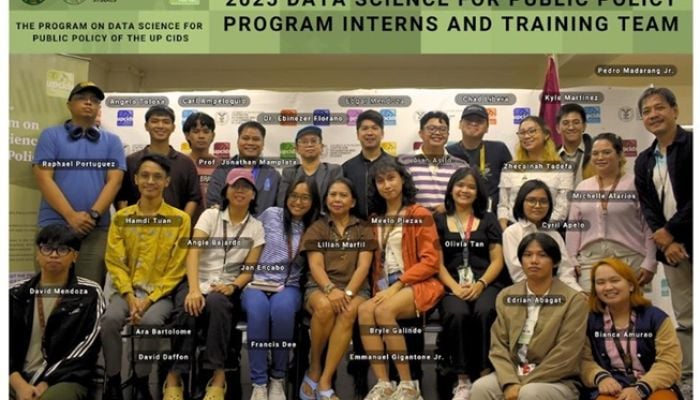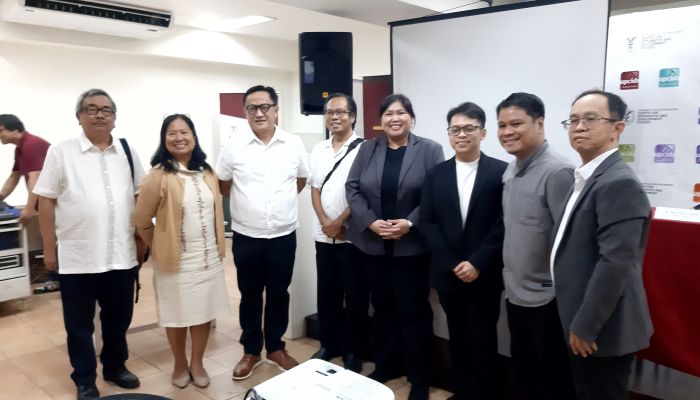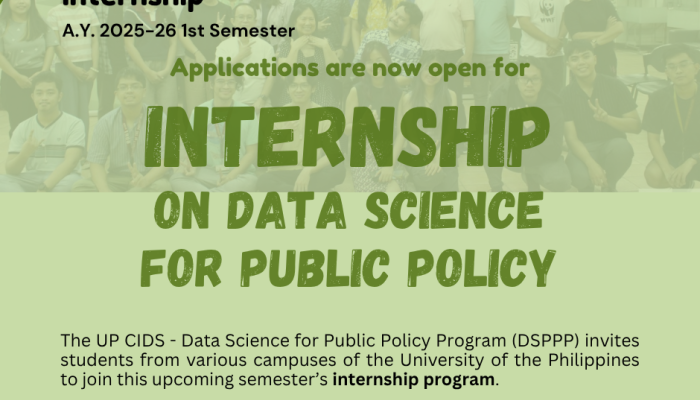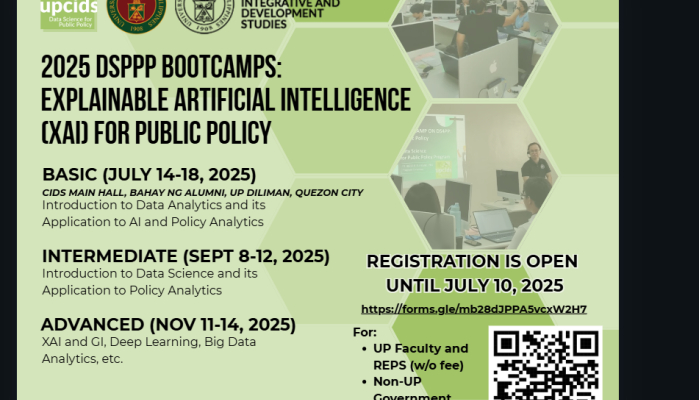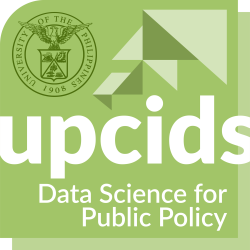
Program on Data Science For Public Policy (DSPPP)
-
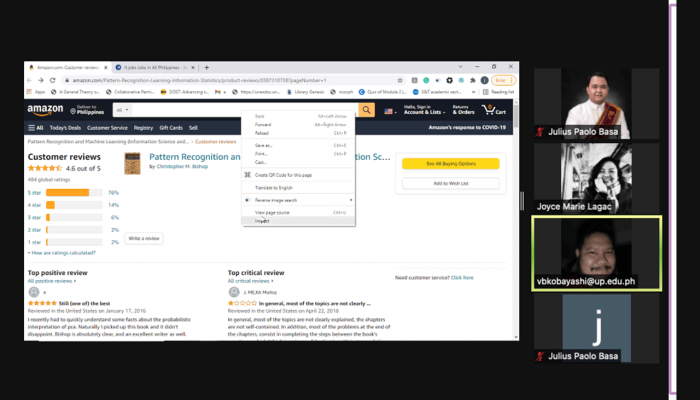 Source/Credit: Joyce Marie LagacSenior Project Assistant Julius Paolo Basa and Junior Research Analyst Joyce Marie Lagac attends Day 1 of the Data Scrapping Training of DSPP Research Fellow Dr. Vladimer Kobayashi for their research activity on Analysis of Education-to-Labor-Market and Job-to-Job Transitions.
Source/Credit: Joyce Marie LagacSenior Project Assistant Julius Paolo Basa and Junior Research Analyst Joyce Marie Lagac attends Day 1 of the Data Scrapping Training of DSPP Research Fellow Dr. Vladimer Kobayashi for their research activity on Analysis of Education-to-Labor-Market and Job-to-Job Transitions. -
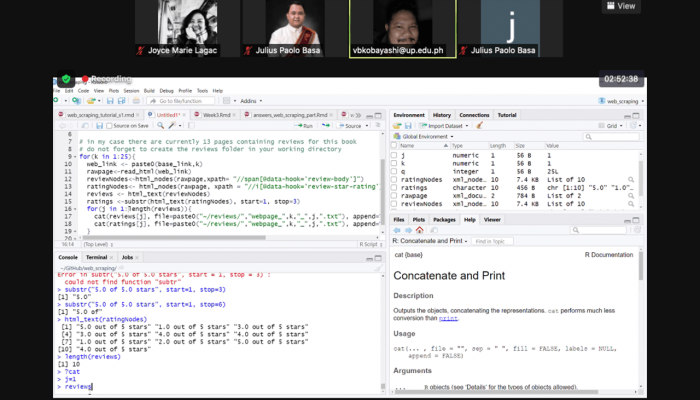 Source/Credit: Joyce Marie LagacDay 2 of the Data Scrapping Training of DSPP Research Fellow Dr. Vladimer Kobayashi for their research activity on Analysis of Education-to-Labor-Market and Job-to-Job Transitions
Source/Credit: Joyce Marie LagacDay 2 of the Data Scrapping Training of DSPP Research Fellow Dr. Vladimer Kobayashi for their research activity on Analysis of Education-to-Labor-Market and Job-to-Job Transitions -
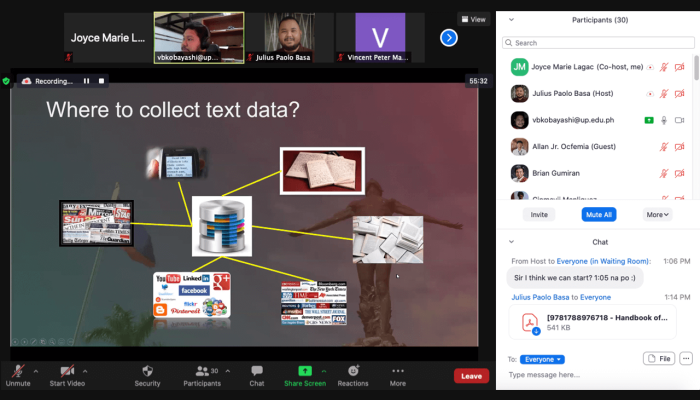 Source/Credit: Joyce Marie LagacDSPP Research Fellow Dr. Vladimer Kobayashi teaches participants text analysis using the program R
Source/Credit: Joyce Marie LagacDSPP Research Fellow Dr. Vladimer Kobayashi teaches participants text analysis using the program R -
 Source/Credit: Joyce Marie LagacDSPP Research Fellow Dr. Vladimer Kobayashi teaches participants text analysis using the program R
Source/Credit: Joyce Marie LagacDSPP Research Fellow Dr. Vladimer Kobayashi teaches participants text analysis using the program R -
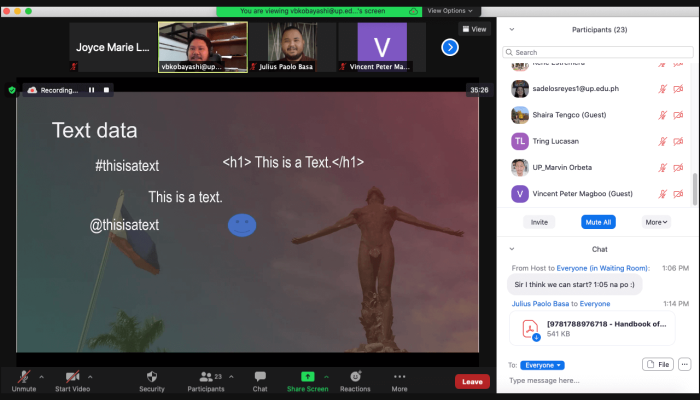 Source/Credit: Joyce Marie LagacDSPP Research Fellow Dr. Vladimer Kobayashi teaches participants text analysis using the program R.
Source/Credit: Joyce Marie LagacDSPP Research Fellow Dr. Vladimer Kobayashi teaches participants text analysis using the program R. -
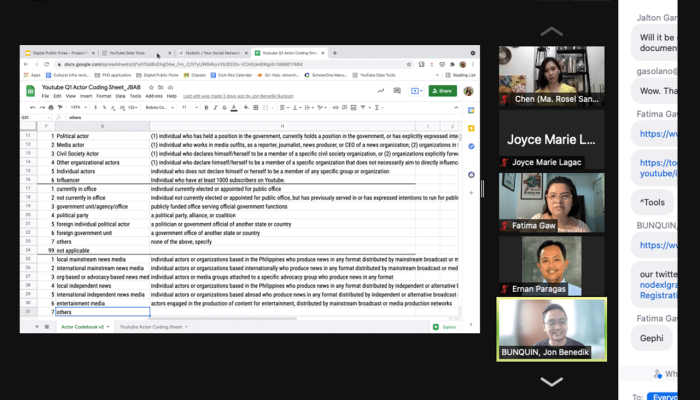 Source/Credit: Joyce Marie LagacDSPP Convenor Dr. Jalton Taguibao presides over the consultation meeting with UP Diliman’s CMC and Dr. George Solano of UP Manila.
Source/Credit: Joyce Marie LagacDSPP Convenor Dr. Jalton Taguibao presides over the consultation meeting with UP Diliman’s CMC and Dr. George Solano of UP Manila. -
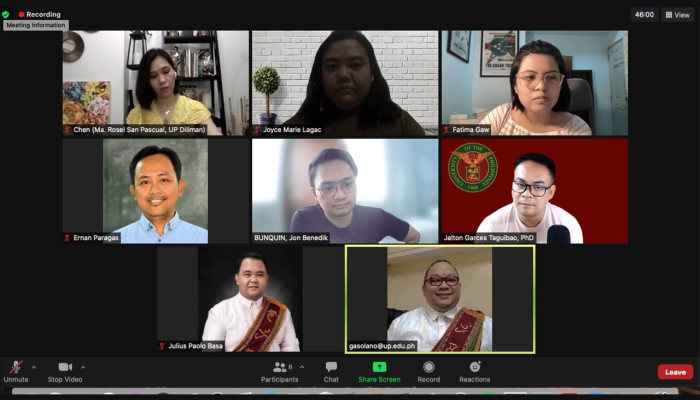 Source/Credit: Joyce Marie LagacThe group met to discuss the Digital Public Pulse project, a media-monitoring project that traces, maps, and analyzes public discourses in the Philippine digital public sphere.
Source/Credit: Joyce Marie LagacThe group met to discuss the Digital Public Pulse project, a media-monitoring project that traces, maps, and analyzes public discourses in the Philippine digital public sphere.
Rationale
Data science can help understand some of the country’s most vexing problems in the public sector, especially when information is available. Nearly all aspects of governance operate using complex systems made up of networks of interrelated, interdependent, and multicontextual factors. The most innovative tools of data science and analytics have opened up new possibilities for empirical examination of social problems best studied within the complex systems framework.
As such, the Program on Data Science for Public Policy was established as a a series of research projects and interconstituent unit (CU) research engagement activities for various agendas of national public policy. It generally seeks to build capacity and craft research agenda toward applied data science analytics through complex systems frameworks.
Objectives
DSPP has three objectives. First, it aims to build the capacity of UP faculty in data science and apply this learned skill to public policy and governance. Second, it seeks to engage a community of researchers within the university and encourage the pursuit of interdisciplinary problem-oriented research using high-level quantitative analyses. Finally, it strives to convene multidisciplinary teams of social scientists, humanists, and scientists to research issues in the public sector.
Publications
Activities and Projects
Watch a recording.
View details.
View details.
View the Term Reports from 2018 to 2024 for a list of DSPPP programs and activities, which include meetings, webinars, and/or publications (forthcoming or already published).
You may visit the DSPPP’s Microsite for more details and resources.
News
The Team
as of May 2025
Ebinezer Florano, Ph.D.
Convenor
National College of Public Administration and Governance
University of the Philippines Diliman
Project Leader/Research Fellows
- Culturomics Team (5): Cristabel F. Tiangco, Asst. Professor in Psychology, UP Pampanga
- Sergia Fatima P. Sucaldito, Clinical Associate Professor, Department of Medicine, UP Manila
- DJ Darwin R. Bandoy, Associate Professor 5, Department of Veterinary Paraclinical Sciences, UP Los Baños
- Margarita M. Gutierrez, Associate Professor 1, Department of Clinical, Social and Administrative Pharmacy, UP Manila
- Mac Ardy J. Gloria, Associate Professor 5, Department of Clinical, Social and Administrative Pharmacy, UP Manila
